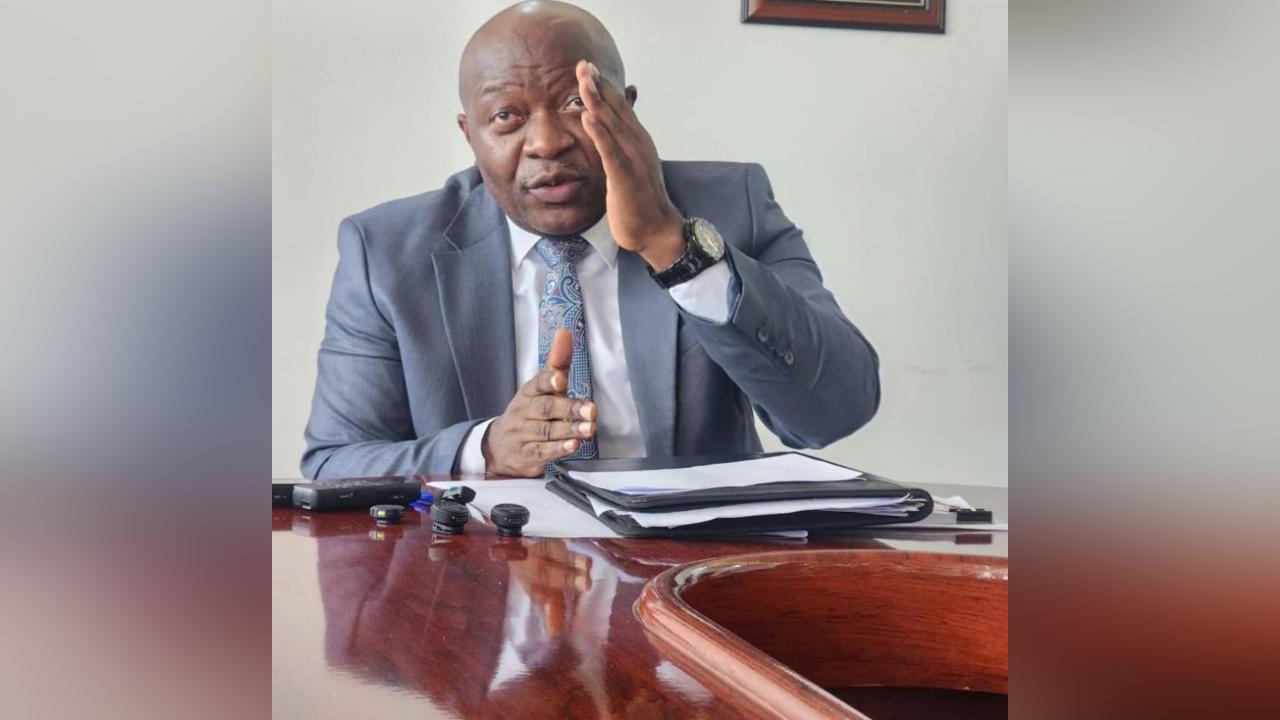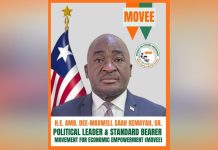Africa-Press – Liberia. Finance and Development Planning Minister Augustine Kpehe Ngafuan says Liberia has taken a significant step toward securing a second Millennium Challenge Corporation (MCC) Compact, expressing optimism that the country will be favorably considered during the MCC Board’s meeting in December.
Speaking during a media engagement at the Ministry of Finance and Development Planning (MFDP), Minister Ngafuan disclosed that Liberia passed 12 of the MCC’s 22 performance indicators this year—including all three “high-hurdle” categories: Control of Corruption, Government Effectiveness, and Political and Personal Rights.
Passing at least 11 indicators is mandatory for MCC consideration.
“This pass was extremely critical. Some big countries in our region didn’t pass. Liberia did. That allows our file to be officially opened at the MCC Board meeting in December,” Minister Ngafuan emphasized.
Liberia was deemed eligible for a second MCC Compact in December 2024, but progress stalled due to a shift in U.S. foreign policy priorities and the temporary suspension of several American assistance programs, including major USAID funding.
What the MCC Compact Means
The MCC Compact is a large, five-year grant intended to reduce poverty and stimulate economic growth through targeted, measurable development programs. These programs are designed jointly by the MCC and the partner government, with strict transparency, accountability, and procurement standards.
Minister Ngafuan credited Liberia’s renewed progress to strong advocacy led by President Joseph Nyuma Boakai, supported by the Ministry of Foreign Affairs and the MFDP.
Several high-level engagements have taken place since January, including visits by former U.S. Ambassador Mark Toner and MCC Africa Regional Director Jason Small, meetings during the World Bank/IMF Annual Meetings in October, and a two-week MCC assessment mission in Monrovia in September.
“From where I sit, and based on all of our engagements, we are very hopeful,” he said.
How Much Will Liberia Receive?
“Too Early to Say,” says Ngafuan
Minister Ngafuan cautioned against speculation on the size of the potential compact.
“It could be above US$500 million. It could be below. But right now, we have zero. Even US$100 million in grant—not loan—is transformational. We already saw what the first compact did.”
Liberia’s first MCC Compact, valued at US$257 million, funded the rehabilitation of the Mount Coffee Hydropower Plant, now the nucleus of the nation’s electricity grid.
Energy and Infrastructure Remain Top Priorities
The MCC has once again identified energy and infrastructure, including roads and ports, as Liberia’s primary constraints to growth—aligning closely with the Boakai administration’s ARREST Agenda.
“These are areas with massive economic impact. When we prioritized roads and energy in the budget, some people questioned it. But the MCC has independently identified the same constraints,” Ngafuan noted.
Budget Supports Reform Commitments
Minister Ngafuan tied Liberia’s expanded US$1.211 billion FY2026 draft budget to reforms that bolster MCC credibility. Key features include 94% domestic revenue financing, a historic level of self-reliance, major allocations for roads and energy, planned rollout of smart metering at LEC, significant investments in revenue administration and debt repayment commitments exceeding US$230 million next year.
Improved fiscal governance, stable macroeconomic conditions, and strengthened accountability systems, he said, are essential to convincing global partners of Liberia’s readiness for another compact.
“We believe Liberia is well on track,” Minister Ngafuan said, while maintaining that only the MCC Board can make the final decision.
If approved, Liberia would join a small group of countries awarded a second MCC Compact.
Ngafuan Defends NSA Budget Increase Amid Public Criticism
Minister Ngafuan also used the media engagement to defend the proposed rise in the National Security Agency’s budget, which has sparked widespread public concern.
The NSA’s allocation has climbed from US$14.8 million in FY2025 to a proposed US$22.1 million for FY2026, prompting critics—including Senator Amara Konneh and MPC Political Leader Simeon Freeman—to accuse the administration of misplaced priorities.
Minister Ngafuan rejected claims of ulterior motives, arguing that the security sector remains severely underfunded compared to its operational demands and unlike social sectors such as health and education, does not benefit from significant donor support.
“There are too many things that go into keeping the country safe—things we cannot put out in public. What I can say is we are not reckless in budgeting for security,” he said.
He pointed to audit reports showing that in 2023, the previous administration budgeted US$28 million for the NSA but spent US$84 million—a clear signal of underbudgeting.
Konneh Pushes Back
Senator Amara Mohammed Konneh, Chair of the Senate Public Accounts Committee, criticized the NSA’s budget increase while essential sectors like health remain significantly underfunded.
But Minister Ngafuan maintained that the FY2026 proposed allocation of US$22 million is “even below 2023 spending levels”, and driven by operational realities rather than political motives.
Domestic Debt Nearly Equal to National Budget
The minister revealed that Liberia’s domestic debt stock is nearing US$1.1 billion, and could rise by an additional US$95 million after recent GSA vetting.
Major domestic creditors include the Central Bank of Liberia and commercial banks.
Failure to service these debts—nearly US$19 million owed to commercial banks this year alone—could destabilize the economy, he warned.
Overall, Liberia’s total public debt stands at US$2.7 billion.
The government is also confronted with over US$100 million in court judgments, with lawyers “parading the hallways” of the MFDP for payments.
Public Concerns Over Social Spending, Minimum Wage
Responding to questions about perceived underfunding of social services—such as disability support, drug rehabilitation, and shelters for at-risk youth—Ngafuan said Liberia’s revenue is far too small to meet the nearly US$2 billion worth of budget requests submitted by ministries and agencies this year.
He also refuted claims that Liberia is overtaxing businesses, insisting the country maintains “one of the lowest tax regimes in the region” and a minimum wage higher than many ECOWAS states.
“Hard Times Are Quietly Easing”
Minister Ngafuan argued that although citizens may not yet feel it, gradual economic improvements are taking hold. These include regular, earlier payment of government salaries, ending the “delay tax” on civil servants, deployment of government buses for workers and commuters, financing for new schools, road rehabilitation, including the RIA corridor and record domestic revenue collection.
He said much of the hardship stems from longstanding structural issues—particularly energy and infrastructure deficits—that the administration is now addressing.
LRA Performance Strong but Needs More Resources
On the Liberia Revenue Authority (LRA)—which is requesting 5% of total revenue for operational strengthening—Ngafuan said the institution has consistently met its targets and deserves improved funding. Future disbursements, he added, will be tied to performance benchmarks.
For More News And Analysis About Liberia Follow Africa-Press






